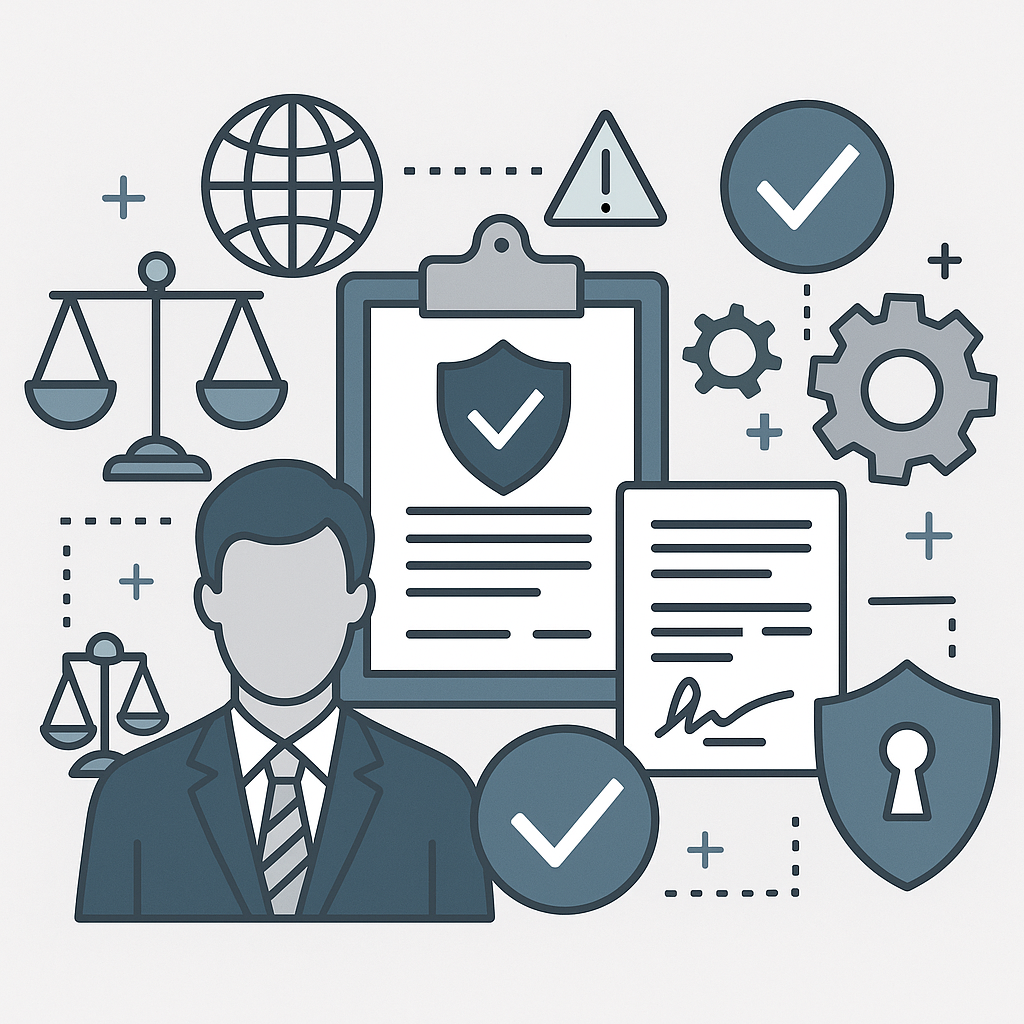Planning for the future can often seem daunting, but creating an estate plan is one of the most important steps you can take to ensure your loved ones are taken care of, and your wishes are respected when you’re no longer there. Whether you’re just starting out or looking to update an existing plan, this guide will help you navigate the estate planning process with ease.

Estate planning is essential for everyone, regardless of age or wealth. From deciding who’ll inherit your assets to outlining your healthcare preferences, a well-thought-out estate plan can provide peace of mind and security for you and your family.
This article will explain how to create an estate plan. Dive in and explore practical tips to tailor your plan to your unique circumstances and needs!
Understanding The Basics Of Estate Planning
Think about your life’s treasures—your home, belongings, savings, and other valuable items. Estate planning is like making a roadmap for those treasures. Conduct thorough research to understand what you need for a complete estate plan.
Visit online resources and websites from reputable estate planning law firms, such as lawkp.com, to create a comprehensive plan. Consider working with a qualified family estate lawyer to help with the planning.
Here’s how estate planning helps:
Protect Your Loved Ones
An estate plan lets you decide who inherits your money, property, and possessions after you’re gone. Whether it’s cash savings or family heirlooms, you get to choose the beneficiaries. This keeps treasured items in your family’s hands and provides for those you care about most.
Adds Probate
Skipping probate court keeps inheritance simple for family members. With a proper estate plan, assets like bank accounts and the family home transfer directly to the heirs you name – no judge required. This saves time, money, and stressful court visits during an already difficult period. Savvy planning prevents this legal headache.

Minimizes Taxes
Careful estate planning trims taxes, preserving more of your hard-earned wealth for loved ones. Strategies like trusts and gifting can reduce exposure to costly estate and inheritance taxes. For example, placing assets in an irrevocable trust shields them from taxes. More money goes where you want—to children, charities, or other beneficiaries.
Healthcare Decisions
An estate plan lets you make critical healthcare choices now, before any medical crisis. Designate someone you trust to make decisions if you’re not in a position to. Planning outlines your wishes for life-sustaining treatment, plan management, or ending care, relieving loved ones of agonizing choices later.
These are just some of the reasons to plan your estate. Taking proactive steps today ensures a more seamless transition and a lasting impact on those you leave behind.
Steps To Create An Estate Plan
Estate planning doesn’t need to be a complicated process. Here are a few tips to help you get started:
1. Assess Your Assets And Liabilities
Knowing your financial standing is key before you start planning your finances. First, tally your financial assets or things you own. This includes:
- Real estate, like your home or rental properties
- Personal belongings such as vehicles, jewelry, or art collections
- Money in bank accounts, investments, and retirement funds
- Business stakes or intellectual properties also count
Next, note your liabilities or what you owe
- Mortgages on properties
- Outstanding personal, auto, or student loans
- Unpaid credit card balances and medical bills
- Estate tax obligations
Your net worth subtracts liabilities from assets. For instance, if you own a USD$300,000 house with a USD$200,000 mortgage, plus USD$50,000 in retirement savings but USD$10,000 in credit card debt, your net worth would be USD$140,000. Grasping this big picture illuminates how to allocate your estate correctly.
An accurate asset-liability breakdown provides a solid foundation for wiser decision-making about beneficiaries and bequests. Consulting professionals could further clarify complex scenarios, such as business successions or tax implications.
2. Define Your Estate Planning Goals
After understanding your financial situation, the next step is to define your estate planning. These goals will help ensure your plan reflects your values. If you have young children or dependents, protect their well-being first.
For example, appoint guardians, establish trusts to manage their inheritance wisely, and secure their long-term financial future. Also, provide for your spouse’s needs; consider joint accounts, spousal trusts, and provisions for potential long-term care costs.
Minimize taxes and expenses through strategies like gifting assets during your lifetime or setting up trusts. This preserves more wealth for your heirs. If charitable giving matters to you, include donations in your plan—direct bequests, charitable trusts, or establishing a foundation exemplify options. Clearly defined goals ensure an estate plan aligns with your priorities, providing peace of mind for you and your loved ones.
3. Seek Professional Guidance
While drafting an estate plan yourself seems doable, professional guidance is invaluable for fully safeguarding your legacy. Experts offer specialized insights aligning with your unique situation and goals.
Some professionals you may want to hire include:
Estate Planning Attorney
Consult an estate planning attorney for expert legal guidance tailoring your affairs. They’ll draft crucial documents like wills and trusts while ensuring full compliance with all relevant state and federal regulations. For example, an estate attorney can structure asset ownership, avoiding excessive federal estate taxes upon transfer to heirs. Their specialized expertise prevents costly mistakes, assuring that your wishes will come to pass.
Financial Advisor
Financial advisors provide a holistic wealth management perspective. They can develop tax-efficient strategies that integrate your estate plan with broader investing and retirement plans, maximizing the transfer of your assets to heirs.
Tax Advisor
Tax professionals identify estate and income tax reduction opportunities. Their specialized knowledge reveals legal ways to preserve more of your hard-earned wealth for your beneficiaries by minimizing taxation’s bite.
By collaborating with this team of credentialed professionals, you access comprehensive estate planning mastery, reinforcing your family’s long-term financial security. The upfront investment provides invaluable assurance that your affairs will transfer according to your directives.
4. Choose Key Estate Planning Documents
When crafting an estate plan, certain vital documents lay the groundwork. Each document serves a specific purpose, but all ensure your wishes are clearly communicated and legally enforceable. These documents include:
Last Will And Testament
Your last will legally direct how assets are distributed after passing. It can also name guardians for minors and outline funeral preferences. This foundational document provides explicit instructions for your executor.
Living Trust
A living trust empowers a trustee to manage assets for your beneficiaries. Unlike a will, it avoids the probate process, offering privacy and lifetime flexibility. For example, the trustee could pay bills or make investment decisions on your behalf before and after passing away. This arrangement ensures continuous asset oversight without court involvement.
Durable Power Of Attorney
Designate a trusted individual through a durable power of attorney. If you become unable to manage finances, this named agent can step in. They’ll pay bills, make monetary decisions, and handle all money matters on your behalf. For instance, an agent could deposit checks, transfer funds between savings accounts, or make investments for you. This ensures your finances remain in order.
Healthcare Power Of Attorney And Living Will
Name a healthcare proxy using a power of attorney document. This person makes medical decisions if you can’t do it yourself. Separately, a living will specifies your end-of-life treatment preferences, like declining life support. Having both ensures your healthcare wishes get honored. For example, your proxy could consent to a procedure or move you to hospice care based on your health care directives.
Having these documents ensures that all your affairs will be in order even when you’re not there to make decisions. So, talk to your family lawyer and inquire about all the paperwork you need to fill out for a good estate plan.
5. Consider Setting Up Trusts
Trusts deserve serious consideration during estate planning, as they offer asset protection, tax advantages, and distribution control benefits. Use revocable living trusts to maintain a lifetime of wealth management flexibility.
You can revise or terminate them anytime. Trust assets bypass probate after your passing per your instructions. For example, revocable trusts let you provide for grandchildren’s education while staying in charge.
Alternatively, opt for irrevocable trusts, which provide robust asset shielding and tax savings. Once established, these can’t be modified but better protect wealth from creditors and estate taxes. These trusts can also fund long-term care needs strategically. For instance, you could place key real estate into an irrevocable trust.
For dependents with a disability, special needs trust funds also earn consideration. They provide supplemental financial support while preserving government aid qualifications. This ensures resources cover quality care and lifestyle needs that should be addressed publicly. Overall, consulting experts maximize the protective, tax-saving, and control advantages trusts offer in customized estate plans.
6. Designate Beneficiaries
Actively designating beneficiaries is a critical estate planning step. Beneficiaries are the individuals or organizations that receive your assets after you pass away.
When naming beneficiaries, specify both primary and contingent choices. Primary beneficiaries receive your assets first, while contingents serve as backups if primaries can’t or decline the inheritance. For example, you may list your spouse and children as primary beneficiaries, with charities or other relatives as contingents.
Live events like marriage, divorce, births, or deaths commonly trigger beneficiary updates. Regularly reviewing and revising beneficiary designations ensures your selections accurately reflect current wishes over time. Don’t let an outdated beneficiary derail your intended asset distribution.
7. Plan For Incapacity
Beyond planning for life’s end, proper preparation ensures your affairs remain in order if you become incapacitated. S0, don’t overlook this critical aspect.
Advance health care directives specify your medical wishes and empower a representative to make care decisions on your behalf. These include healthcare power of attorney and living wills. For example, you could use a living will to reject life-prolonging measures like ventilators under certain circumstances.
Grant a different trustworthy person financial power of attorney. This allows your appointed agent to step in and handle money matters like bill paying, investment oversight, and banking transactions. Think of it as having a backup plan to manage your finances during incapacity.
8. Communicate Your Plan
Clear communication prevents surprises when executing your estate. Actively discuss your arrangements with all involved parties – don’t keep loved ones in the dark.
First, inform appointed executors, trustees, guardians, and agents about their specified roles and responsibilities. Provide document copies and ensure they grasp your intentions fully. For example, walk your healthcare proxy through your living will’s treatment preferences.
Additionally, consider holding a family meeting dedicated to your estate plan. This allows you to explain your decisions to heirs while proactively addressing any questions or concerns. An open dialogue fosters understanding and manages expectations, reducing potential conflicts later.
Your estate represents years of hard work; proper communication demonstrates respect for your wishes while including those closest to you in the process. This transparent approach promotes a smoother transition and adheres to your directives just as intended.
9. Review And Update Your Plan Regularly
Your estate plan requires reviews and updates – it’s not a one-and-done task. Life’s inevitable changes necessitate revising your arrangements over time.
At a minimum, reconsider and refresh your plan every 3-5 years. But also initiate updates after significant life events like marriages, divorces, births, deaths, job changes, geographic relocation, or substantial money moves. For example, having another child means accounting for an additional beneficiary.
Legislative changes also occur around estate tax laws and finance regulations. These legal and economic shifts can impact inheritance strategies and asset distribution. Routinely consulting estate specialists ensure your plan adapts to new rules and situations as they arise.
By treating your estate plan as an evolving blueprint rather than a carved-in-stone document, you prevent unintended consequences like unequal bequests or excessive tax erosion. Scheduling periodic reviews with professionals provides peace of mind that your wishes remain executed precisely according to your latest intentions.
Conclusion
Planning for the future can feel overwhelming, but creating an estate plan is essential for safeguarding your loved ones’ well-being and ensuring your wishes are carried out in the future. Remember, estate planning isn’t just for the wealthy or elderly; it’s a crucial part of responsible wealth management for everyone. By following this guide, you can craft a plan that reflects your unique needs and provides peace of mind for everyone. Think of your estate plan as a living document. Revisit and update it as your family grows, your wealth evolves, or your circumstances change. With thoughtful planning, you can achieve peace of mind knowing your family’s future is secure.







